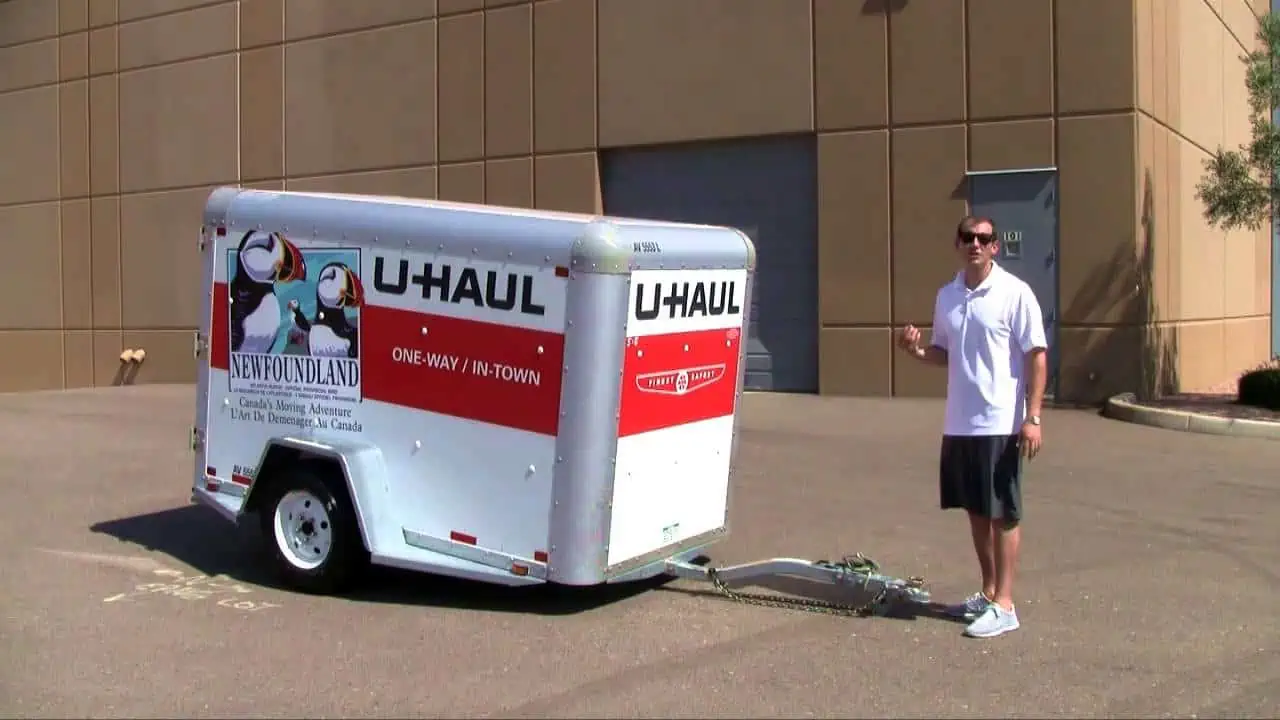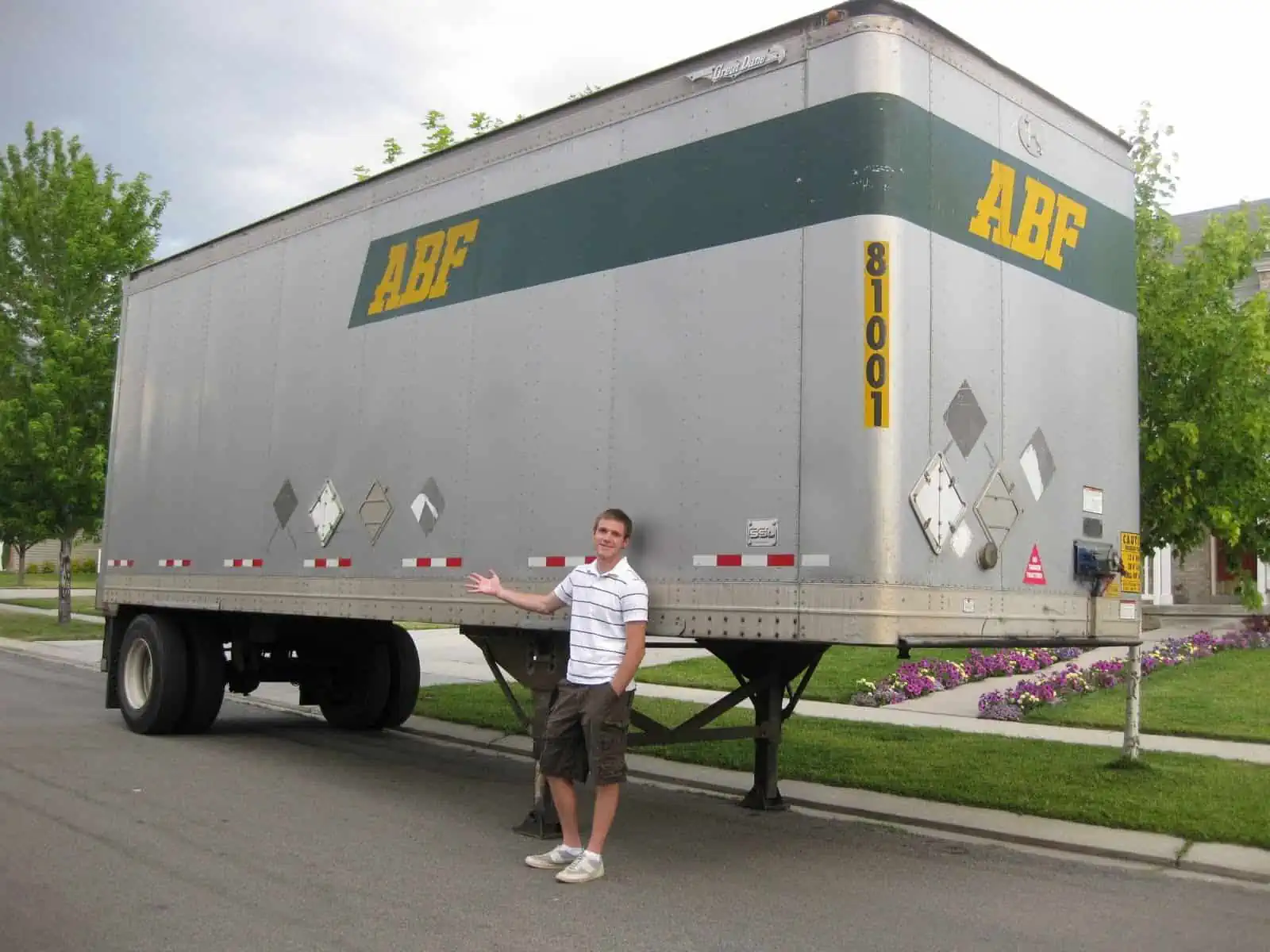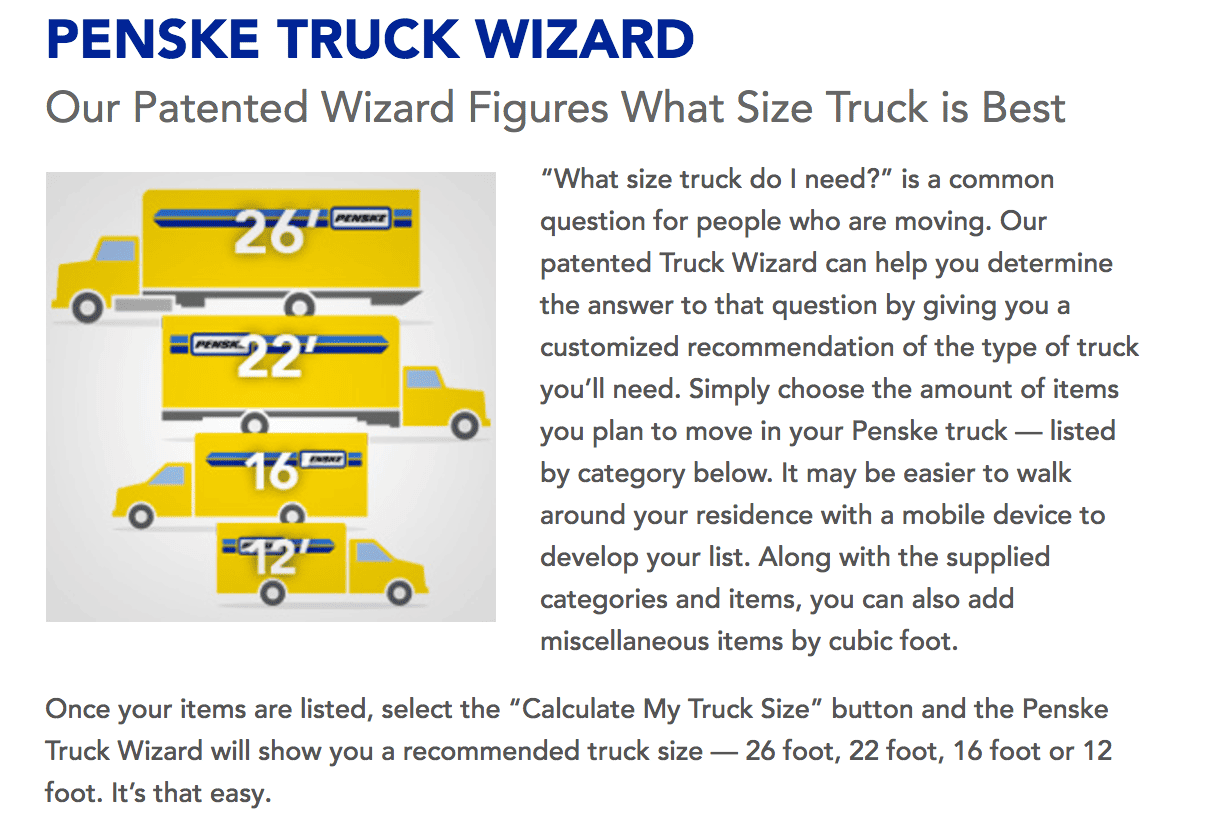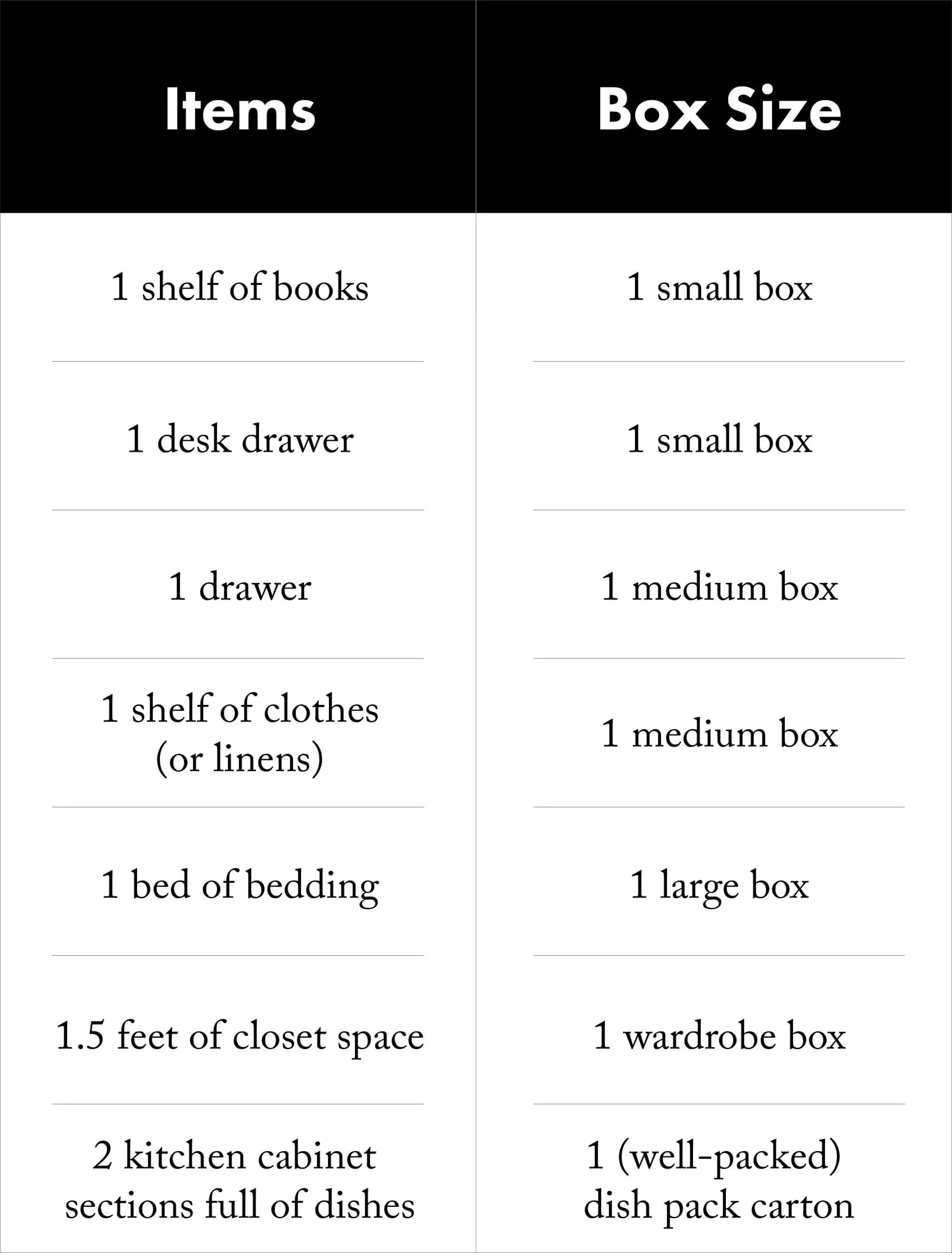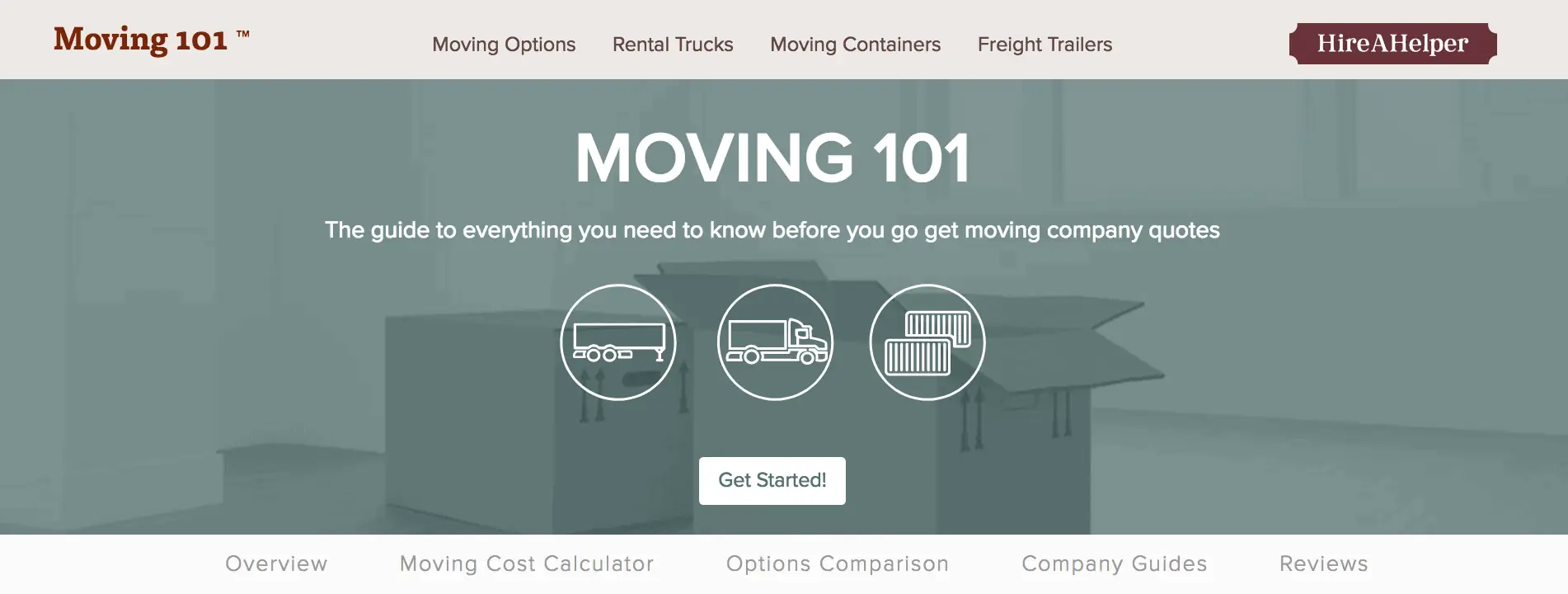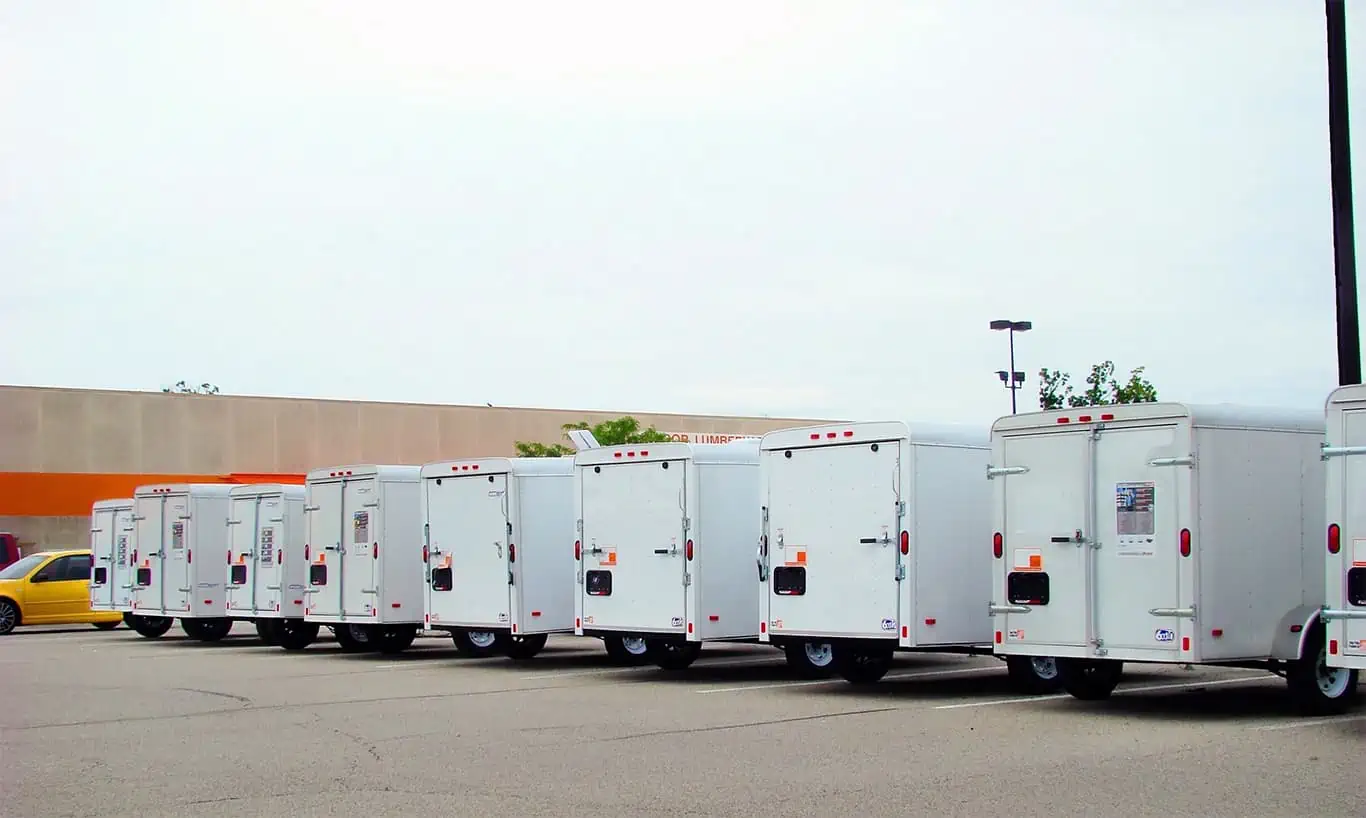Moving in the fall is easier on the schedule, but harder on basically everything else. As such, we offer the following morsels of random fall knowledge. Well actually, it’s knowledge that can make the difference between a safe drive and an accident. Knowing this stuff can prevent disaster, making your off-season move an uneventful success. Remember…
Keep these things on hand when you move during the fall
A good place to start is a list of the bits and pieces to have on hand during cold weather driving and moving:
- Flashlight
- Blankets
- Ice scraper
- Charged cell phone
- Emergency flares
- (Working) spare tire
- Tools to apply spare tires
- Salt or sand
- Shovel
- Cash
A flashlight, blankets and an ice scraper are obvious items. Also have a charged-up cell phone, emergency flares, a (working) spare tire and all the necessary tools and skills to put that spare on. Salt or sand can get you out of a slippery spot, and a shovel can get you out of a deep and powdery one. Food, drink and cash are good to have too.
The fall is when deer mate
Research by the Pennsylvania Game Commission found that the “rut” – the mating season for deer – occurs between mid-October and mid-December, with the peak coming in mid-November. This means as autumn creeps toward winter, the bucks are chasing the does all over the forest – and all over the road. At dusk or dawn is when they are generally most active.
The Insurance Institute for Highway Safety tells us that around 1.5 million deer-vehicle crashes occur annually on U.S. roads, most of them occurring during this annual rut. While a rental moving truck might do more damage to a deer than vice versa, losing control of your vehicle after hitting or avoiding a deer, then plowing into a stationary object and/or overturning is a common and very real danger. Be on the lookout for deer and other nocturnal critters, particularly along rural roads, and while driving through forested areas.
The optimal air pressure for your tires is NOT what’s molded into your tires’ sidewalls
That psi figure on your Michelins is the maximum air pressure they are designed to handle, not what they should be inflated to. For that information, check the decal on the door jamb of your vehicle’s driver side door or the specs laid out in your vehicle’s owner’s manual. Then get your tires checked.
Why is this a problem? Over-inflated tires have less contact surface with the road, which is bad news for a loaded box truck on wet, potentially icy pavement. Excess air pressure also increases your chances of having a blowout. This is in addition to the harsh, uncomfortable ride that stiff, over-inflated tires provide.
On the flip side, under-inflated tires can lower steering precision and cornering stability, things you don’t want to lose in any conditions, let alone on a slippery road. Interestingly, low air pressure, just like high air pressure, can heighten the possibility of a blowout. In addition, keep in mind that cooler temperatures can further decrease air pressure, so check your tires as the weather turns colder.
Be careful where you park (Also, what’s a catalytic converter?)
Did you know if your catalytic converter is clogged or being over-worked, it can get hotter than 1,600 degrees? (A catalytic converter, by the way, is a wonderful bit of chemistry and science that converts toxic by-products of engine combustion into less harmful gases.) Catalytic converters on your car are built and installed with a heat shield, but at those temps, there can still be more than enough heat emanating from the bottom of your vehicle to set a pile of leaves smoking. A moving truck sits relatively high off the ground, so the converter – located along the exhaust pipe between the engine and the muffler – may not pose as big a threat to a pile of leaves as the one on your car.
Either way, all this to say that parking on a pile of leaves is never a good idea. Aside from the potential for fire, leaf piles can hide things like potholes, debris and playful little children.
Sticking with the subject of leaves, never forget that they don’t have to be in a pile to be a hazard. Wet leaves can make for a mighty slick surface that can turn icy and even more slippery during the chilly late-year night. Dry, new-fallen leaves can hide puddles and ice patches as well.
Black ice is sneaky and terrible
There’s a special term for water that freezes without air bubbles getting trapped inside; It’s called black ice. (Okay, so maybe you’ve heard of it.) Black ice, of course, is not actually black, but that absence of air bubbles combined with our vantage point as we roll along the pavement makes it appear black. It also looks like nothing more than a wet spot on the road, which is what makes it so innocuous, and therefore extremely dangerous.
Black ice is able to form on road surfaces when there is little to no traffic to disrupt the freezing process. Early morning, then, is when the danger is particularly prevalent. Be alert on those quiet country roads as well!
Consider what you wipe condensation off with
Cloth diapers are better than disposable ones. I’m talking, of course, about clearing the condensation off the inside of your windshield. Particularly when you combine the cool and moist fall weather with a malfunctioning rental truck defroster, having a cotton rag or an old t-shirt (or a throwback from the pre-Pamper days) can help you keep your windshield clean and your visibility high. In a pinch, wiping your windshield with your hand is a temporary fix during the day. But at night, the smears your skin leaves behind creates a nasty situation when the headlights from oncoming cars begin to shine through.
Worried about glare? Driving west in the morning – or east in the evening – will not help
This is a consideration all throughout the year, but during the shorter days of the year, the sun can still be on the rise while we head out in the morning and can start sinking long before it’s time to call it a day. And while driving straight into the sun is no fun, facing away from it doesn’t completely save us either.
That’s because the sudden glare in the side view mirror as we turn can be blinding and can affect our vision even when that glare is gone. A bright sun behind us can also make it difficult to see what color that traffic signal is in front of us, let alone see if it’s changing. Also consider that when the sun is behind you, it’s directly in front of everybody going the other way!
Even when the sun is higher in the sky, any snow on the ground can produce a headache-inducing glare. Simply put? Those Ray-Bans aren’t just for summer.
Freezing fog is a real thing
No, it’s not the latest trend in teenage mischief. Freezing fog, as the NOAA puts it, is made of “tiny, super-cooled liquid water droplets (that) can freeze instantly on exposed surfaces (and) can cause black ice to form on roadways.” So if a thick fog weren’t tough enough to drive in, there’s also the potential for black ice forming on the road surface when it’s cold enough.
In any event, reduced visibility from fog demands lower speeds and low headlights (not high beams, which cause more glare than visibility). And since fog is a result of the mixture of moisture and cool air, it is most prevalent at dawn in the colder months, particularly in hilly or mountainous terrain.
Even if you think visibility is not all that bad, remember that your headlights do more than just help you see the road. They also help others see you. And keep in mind that when you turn on your headlights, your tail lights come on too, which can keep speedy and inattentive drivers from slamming into you from behind.
If you don’t know all the specifics – of how catalytic converters work, how black ice forms, or how a doe chooses her buck – that’s quite all right. Just remember that the first can be hot, the second can be deceptive, and those deer can come out of nowhere fast. So make sure you’re prepared for them, and everything else these cooler, shorter days throw at us during your chilly move.


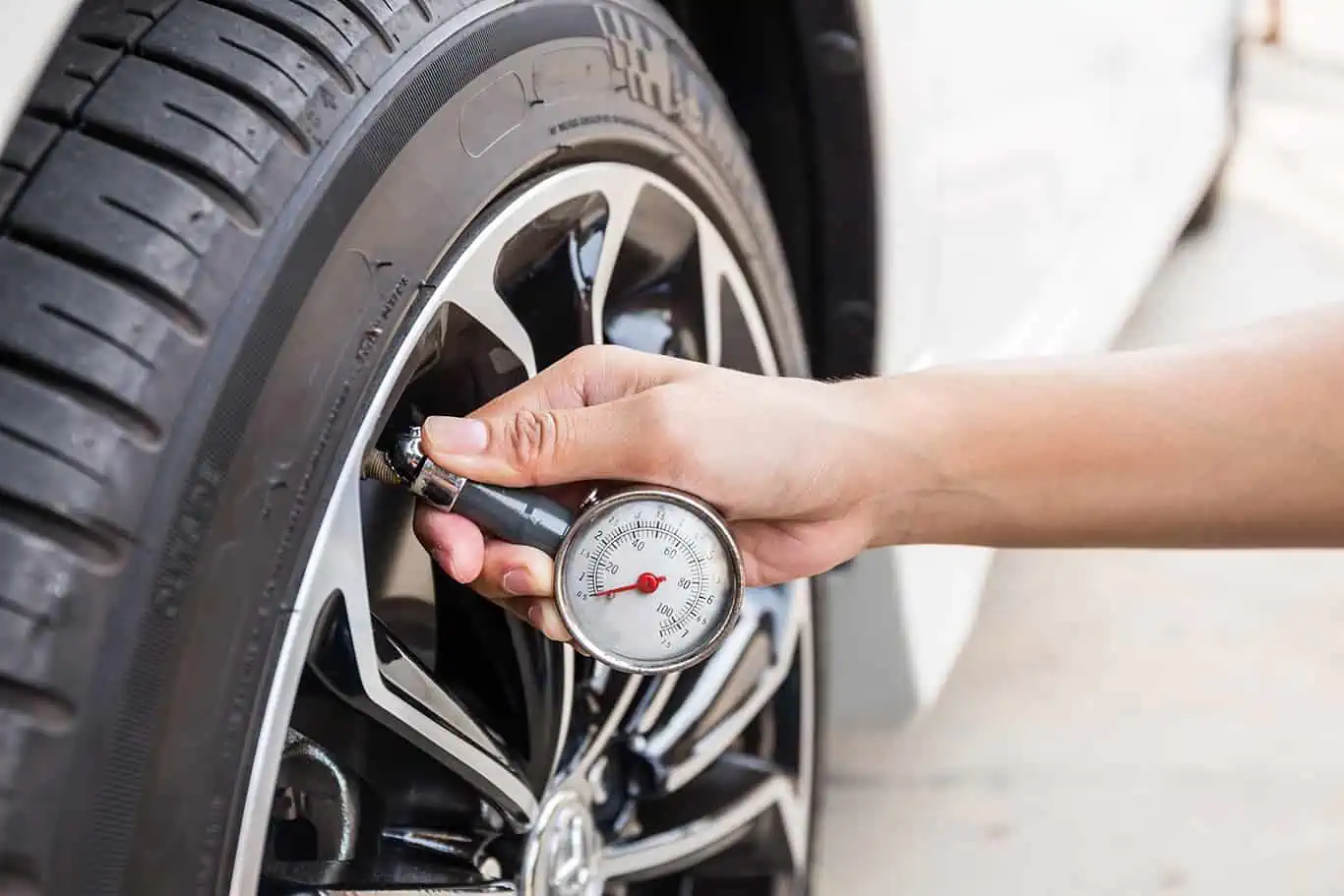






 In the past, there was not much local law enforcement could do in disputes between moving companies and customers due to the fact such disputes are civil and not yet criminal matters. But recent changes in some states’ laws have given those local authorities the power to mediate; In particular, some laws now intervene when a moving company is sitting outside a customer’s home demanding more money before they unload.
In the past, there was not much local law enforcement could do in disputes between moving companies and customers due to the fact such disputes are civil and not yet criminal matters. But recent changes in some states’ laws have given those local authorities the power to mediate; In particular, some laws now intervene when a moving company is sitting outside a customer’s home demanding more money before they unload.
 More often than not, whenever we do hear of a customer finally getting their belongings delivered it was because they sought the help of a local news station.
More often than not, whenever we do hear of a customer finally getting their belongings delivered it was because they sought the help of a local news station. 
 Tax laws can be complicated, so make sure to do some research to determine whether you should file
Tax laws can be complicated, so make sure to do some research to determine whether you should file  Finally,
Finally, 